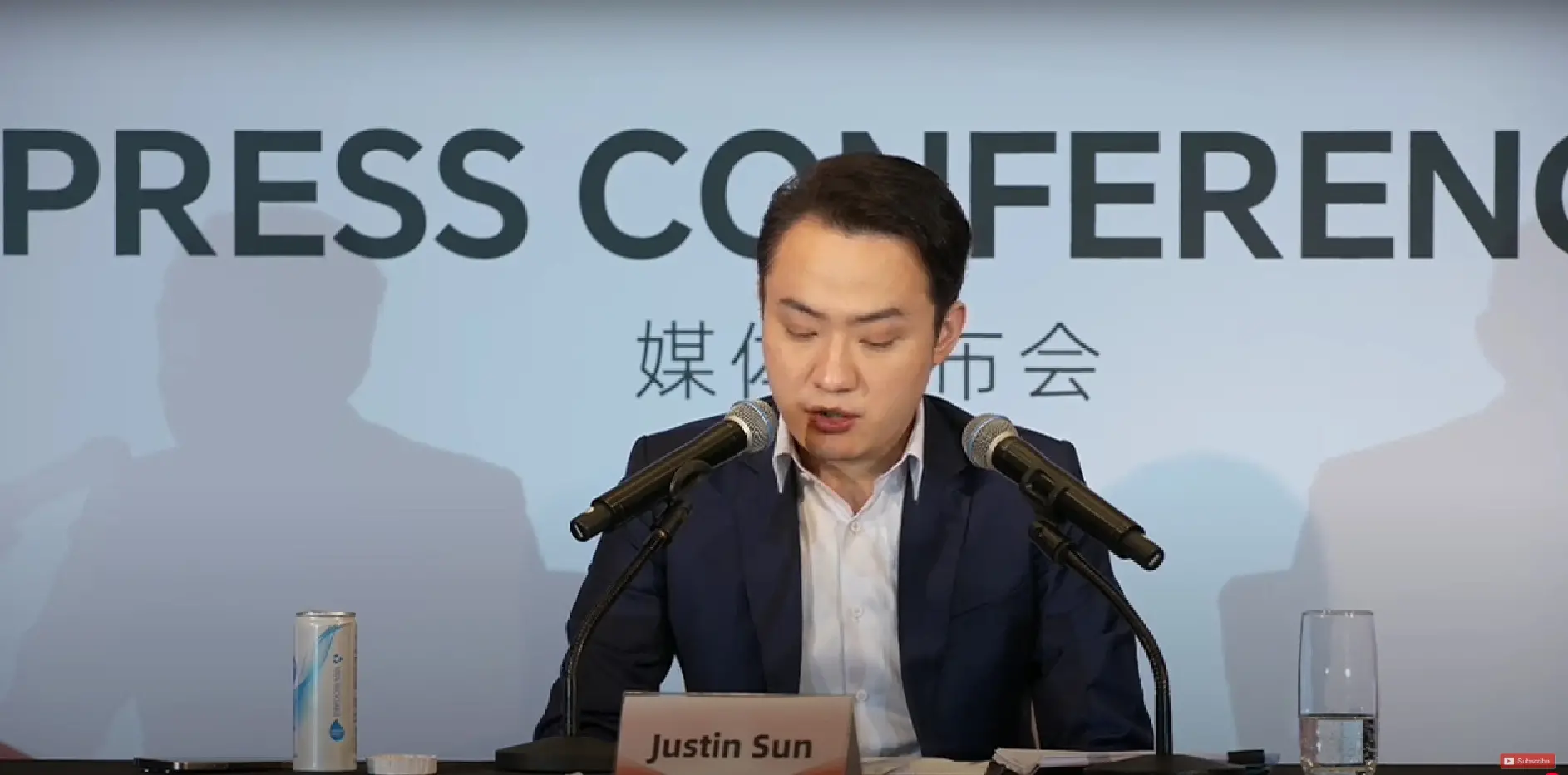The true identity mystery of Sun Yuchen's involvement in Huobi: global advisor or behind-the-scenes boss?
Author: Jonathan Smith, BitpushNews
On October 8, the news of Li Lin selling Huobi Global shares swept through the crypto community. The buyer, Hong Kong's Baiyu Capital, sparked various speculations due to unclear information. However, the subsequent announcement of Sun Yuchen joining Huobi Global's advisory committee seemed to confirm earlier rumors: the actual buyer of Huobi is Brother Sun.
Insiders revealed that Sun Yuchen appeared at the delivery site in Singapore on October 8. Interestingly, he was also present at a gathering with former employees of Huobi during the Token2049 conference held in the same city at the end of September.
Additionally, multiple public recruitment channels indicate that Tron is ramping up its hiring efforts, and there are rumors that some departments of Huobi are being taken over by Tron (former executives with a C title have gradually had their permissions revoked and have submitted resignations).
Even more astonishingly, in a tweet on the 17th, Sun Yuchen stated that he would announce specific measures to empower HT this week, planning to elevate Huobi to the top three globally. After the tweet was posted at 14:35, HT surged from $6.81 to its current $7.24, an increase of 5.78%.
Brother Sun, who is known for his marketing prowess and ability to capitalize on trends, explicitly denied external speculation about acquiring Huobi. However, a series of key details point to a close relationship between him and this acquisition, with many unknown details likely hidden beneath the mysterious surface of capital operations.
1. After the change of ownership at Huobi, many details prove Sun Yuchen's ambiguous relationship with it
At the same time he took on the role of Huobi Global advisor, Sun Yuchen changed his Twitter bio link to Huobi's official website. It is well-known in the crypto community that Sun Yuchen is a top influencer globally. This individual, who once crashed Warren Buffett's charity dinner and served as Grenada's permanent representative to the United Nations, has influence that spans politics, entertainment, technology, and investment, despite facing criticism due to various negative news in the past.
Thus, Sun Yuchen's action, with 3.35 million Twitter followers, clearly indicates the depth of his connection to Huobi and the potential business intersections that may exceed outsiders' imaginations. However, shortly after, Sun Yuchen stated in response to a series of questions that he is not the buyer of Huobi and will strongly support Huobi's development as an advisor.
What’s even more intriguing is that on the 10th, just after Sun Yuchen announced his role as Huobi Global advisor, he stated at an internal employee meeting that Huobi Global would have a series of brand upgrades and actions in the future, aiming to elevate HT's value overall. This news immediately bolstered the confidence of HT supporters, with HT's price rising from around $4.8 on the 10th to over $8 on the 14th, an increase of nearly 50%. Many users who missed the opportunity to buy HT at the bottom lamented that the $1 billion acquisition price was worth it!
According to Etherscan data, it appears that 74 million HT from Huobi's official wallet has been transferred to Brother Sun's wallet, with these two wallets ranking third and fourth in HT holdings. Consequently, Brother Sun has become a major whale in HT. This further solidifies the close connection between Tron and Huobi. Sun Yuchen later admitted in an interview with Coindesk that he has increased his holdings of HT by 10 million and plans to continue increasing them, aiming to compete with and catch up to BNB.
Perhaps due to various reasons and concerns, neither Sun Yuchen nor Tron has disclosed much about their substantive relationship with Huobi. In external public relations, they have adopted an ambiguous and seemingly evasive attitude, which may be a deliberate strategy by Brother Sun's team, who are well-versed in user psychology and marketing strategies. Whether Brother Sun has become the actual controller of Huobi remains difficult for outsiders to determine, but three points can be confirmed:
First, Huobi and Tron have a deep relationship, and their business ties will deepen, which Brother Sun himself has confirmed;
Second, Huobi, which changed direction due to uncontrollable factors last year but failed, may welcome a new turning point;
Third, Brother Sun will increase his efforts in Huobi's operations and customer acquisition, and the exchange sector may undergo changes, making the deep binding of Huobi and Tron noteworthy.
2. The interoperability of Huobi and Tron ecosystems seems to be a foregone conclusion, but the effectiveness remains uncertain
If the rise of HT is a tactical strategy following the acquisition of Huobi, then the interoperability between the two major public chains may be the highest priority strategic plan, as both public chains have their advantages and also possess certain complementary aspects. Sun Yuchen has recently emphasized this point on social media.
Additionally, in an interview with Coindesk, Sun Yuchen mentioned that the algorithmic stablecoin USDD issued by Tron this year will become the value medium for Huobi, and the two will be deeply integrated. Currently, Huobi has matched USDD with six of the hottest representatives to form trading pairs, solely to enhance the circulation and acceptance of USDD.
Of course, Tron's biggest weapon at present is still the TRC-20 transfer protocol. According to official data, compared to transfer protocols launched by competitors like Ethereum, the more cost-effective TRC-20 protocol has already surpassed 100 million total users, and the data continues to grow.
Although the biggest shortcoming of the TRC-20 protocol—poor profitability—remains unresolved for now, it serves as an important entry point for Tron to attract users. If this massive user base can be linked to Huobi's wallet addresses, it will create significant synergy.
Moreover, a large number of DApps in the Tron ecosystem and the Huobi exchange can be easily constructed into a trading closed loop similar to FTX and Solana, or Binance and BNB Chain, enhancing the liquidity of projects.
Currently, the foreseeable cooperation framework between the two is basically limited to a native public chain + stablecoin + exchange closed-loop ecosystem. This seems to be a complementary advantage that is solid and unbreakable, but there are actually huge vulnerabilities in each link.
First, the algorithmic stablecoin USDD launched by Tron has not escaped the death spiral from a mechanistic perspective, which is an inherent flaw of any algorithmic stablecoin.
Moreover, with the lessons learned from the collapse of Luna and the explosion of UST, it seems difficult for Tron to change users' perceptions of algorithmic stablecoins in a short time, making it hard for users to accept USDD and abandon centralized stablecoins like USDT and USDC;
Second, Huobi's public chain Heco lost the majority of its users last year due to reputation issues. It is currently difficult to determine whether the nearly one-year dormant Heco is a burden or a benefit for the Tron public chain. However, one thing is clear: binding the already severely damaged Heco public chain with Tron is not a strong alliance, as the resources and energy of both parties are completely unequal at this point.
Additionally, although the Tron public chain has certain advantages in user numbers, capital scale, and developer ecosystem, its biggest shortcoming is the lack of the most representative quality projects, while Ethereum, BNB Chain, and Solana have made significant achievements in this regard. For Tron, the absence of leading projects will drain the ecological vitality, as it cannot aggregate user traffic, ultimately failing to spill over this series of dividends to other ecosystems. Currently, there are only a few remaining projects on the Heco public chain, let alone quality top projects, so binding Heco with Tron cannot bring complementary effects;
Finally, and most importantly, the Huobi exchange is no longer as formidable as it once was. Last year, Huobi lost its most important market due to uncontrollable factors, but the process of seeking growth in other markets has not been smooth, as strong competitors have long been lurking and strategically positioned.
We have seen that over the past year, Binance has further strengthened its leading position in overseas markets, while OKX has also focused on Web3, with its heterogeneous multi-chain Web3 wallet poised to iterate other digital wallets and seize the Web3 entry point. At the same time, both have utilized their financial power to sponsor top entertainment events or programs globally, greatly enhancing their brand effects.
Moreover, FTX relies on the Solana public chain ecosystem, and Coinbase's core advantage as the number one stock in crypto exchanges remains unshaken, with its moat becoming even more solid, making it difficult for Huobi to catch up in the short term.
In contrast, Huobi's year of silence has caused it to miss a very important time window. When the next bull market begins, it is hard to be optimistic about whether Huobi, which has been stagnant under multiple constraints, can prepare well to compete with other fully armed competitors.
3. The crypto circle is beginning to replicate the competitive landscape of the mobile internet, moving towards oligopolistic competition
In conclusion, we need not predict or speculate too much about the final outcome of Brother Sun's entry into Huobi, as the variables in the crypto circle under the Web3 dimension are greater than those in the Web2 mobile internet circle. However, a rough outline reveals that Web3 is inevitably repeating the industry pattern of the later stages of Web2: oligopolistic competition.
Sun Yuchen's entry into Huobi is essentially a collaboration between strong public chains and strong exchanges, while BNB Chain appears even stronger under Binance's expansion, USDC is gradually eating into USDT's market share with Coinbase's backing, and BitMex's status as the number one contract trading platform in the crypto circle is jeopardized due to its overly singular ecosystem.
Various signs indicate that the future competitive landscape of the crypto circle will inevitably involve various ecological links seeking alliances with complementary players for maximum profit. Surface-level competition will be diluted, but the demand for interests will become more intense in the fierce clashes among various oligopolies, and the degree of decentralization will naturally be temporarily set aside, with priority orders repeatedly rearranged.
In fact, since Ethereum transitioned to a POS mechanism, this has already laid the groundwork for this. For ordinary users, how to seize suitable projects and opportunities under this major trend tests their cognitive levels and judgment abilities.










